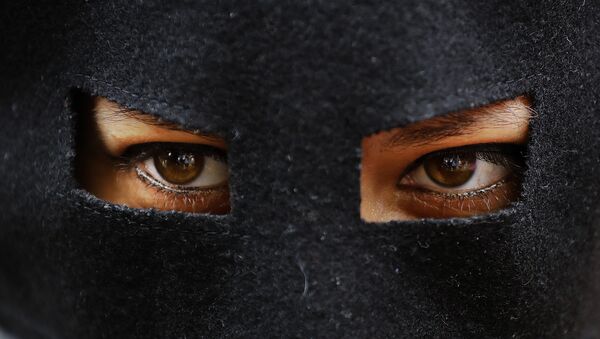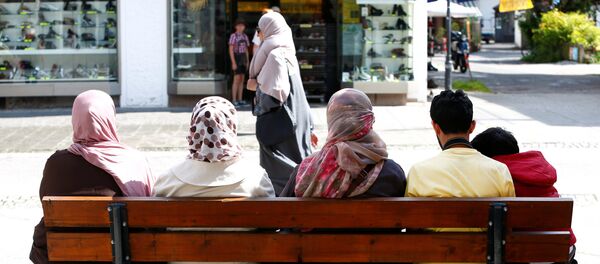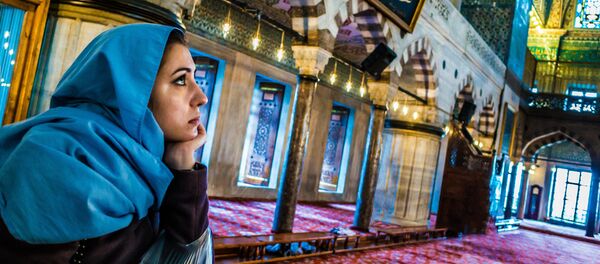The law prohibiting full head and face coverings including the burqa and the niqab came into effect on Sunday. Violators, including both locals and tourists, can face fines of up to 150 euros if they refuse to comply. Austria's government says the ban is aimed at "ensuring social cohesion in an open society," and that "acceptance and respect of Austrian values are basic conditions for successful cohabitation between the majority Austrian population and people from third countries living in Austria."
Speaking to Sputnik Germany, Norbert Leonhardmair, a research fellow at the Vienna-based Center for Social Research, said that whether the law is good or bad thing, enforcing anti-face veil laws shouldn't be a burden for the police.
Neither does the ban help much the fight against terrorism, Leonhardmair insisted. However, security was never the top concern in the first place, according to the expert. The Austrian government justified the ban based on its desire to improve communication between people in public places. "But the task of the state is not to establish models by which people will communicate with each other in public places," Leonhardmair said, adding that not every social problem can be resolved through prohibitions.
On the contrary, the new law entails a series of new problems, he said. For example, in order to avoid accusations of racism or cultural and social discrimination, the ban also includes things like balaclavas and ski masks, and elaborate disguises. Even clown costumes are now restricted for use only during cultural events.
Austrian ban on full-face veil comes into force today. Hat and clown’s mask: Yes; Niqab and Burka: No pic.twitter.com/5AoEaFvKti
— Lars Scholtyssyk (@lars_scho) 1 октября 2017 г.
Ultimately, Leonhardmair insisted that there is no easy "prescription for emancipation," and the goal of creating the conditions in which people will be prepared to take off their veils "is the task of society, not the police."
Vienna's move has sparked a lively debate on social media, with some users from Austria and other countries showing support for the move, with others citing minority rights concerns.
If #Austria can ban face veils why can't the UK.. #Bluehand
— James Bond 🌐 (@bluehand007) 1 октября 2017 г.
Retweet if you think this ban should come into force here too. https://t.co/rmzJepzS8M
— Jeff Covfefe (@EngageTheRebels) 2 октября 2017 г.
Anti-facemask campaigners in balaclavas thrilled about Austrian Burkha banhttps://t.co/09WAhB7Rkt pic.twitter.com/NjLTrdyOcc
— The Rochdale Herald (@RochdaleHerald) 2 октября 2017 г.
Austria face veil ban 'criminalises Muslim women' https://t.co/ismMDtbiVS pic.twitter.com/n2lcuz1CVt
— Al Jazeera News (@AJENews) 1 октября 2017 г.
Austrians will go to the polls later this month for national elections where the anti-immigration Freedom party is expected to do well, possibly entering a coalition with Foreign Minister Sebastian Kurz' center-right Austrian People's Party, which was instrumental in drafting the anti-burqa bill.




